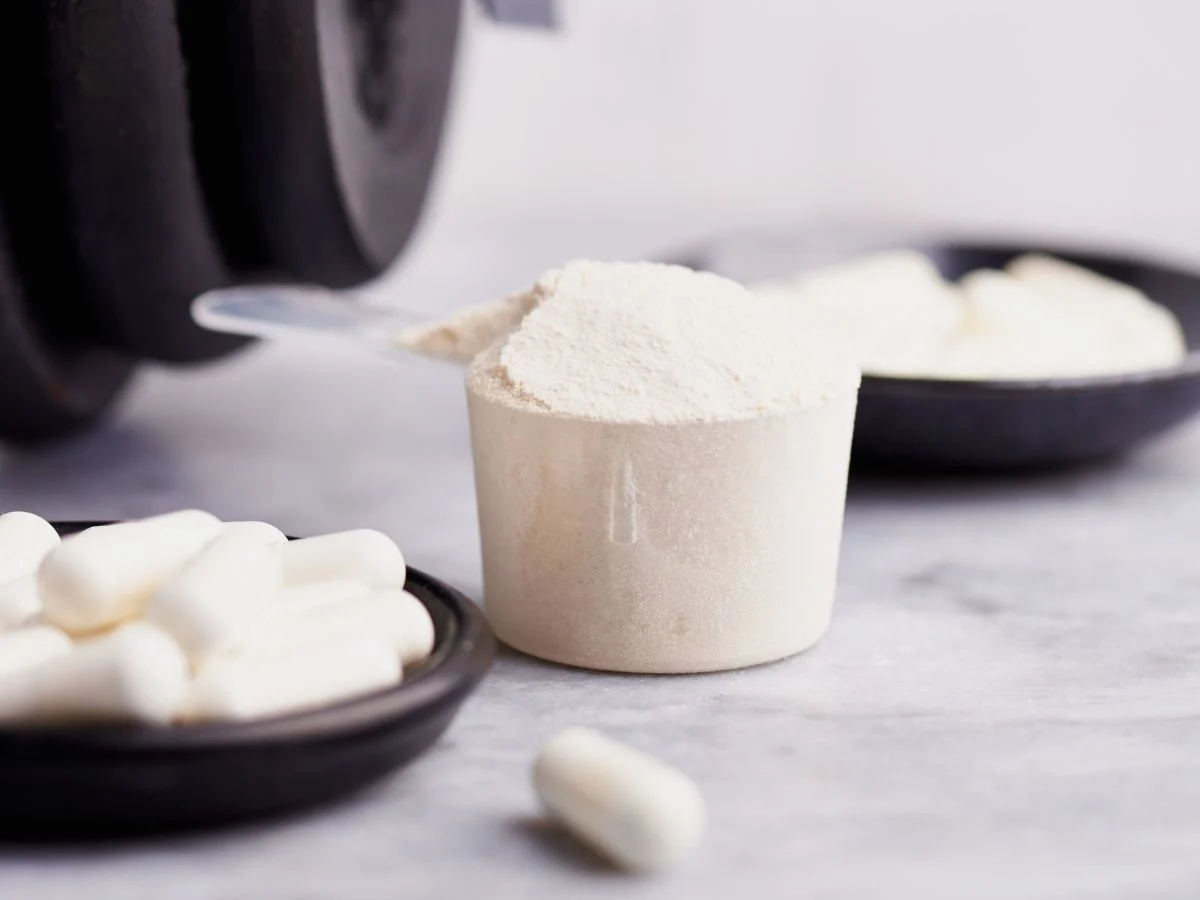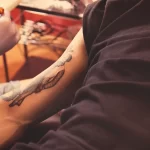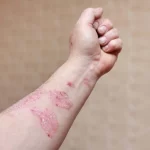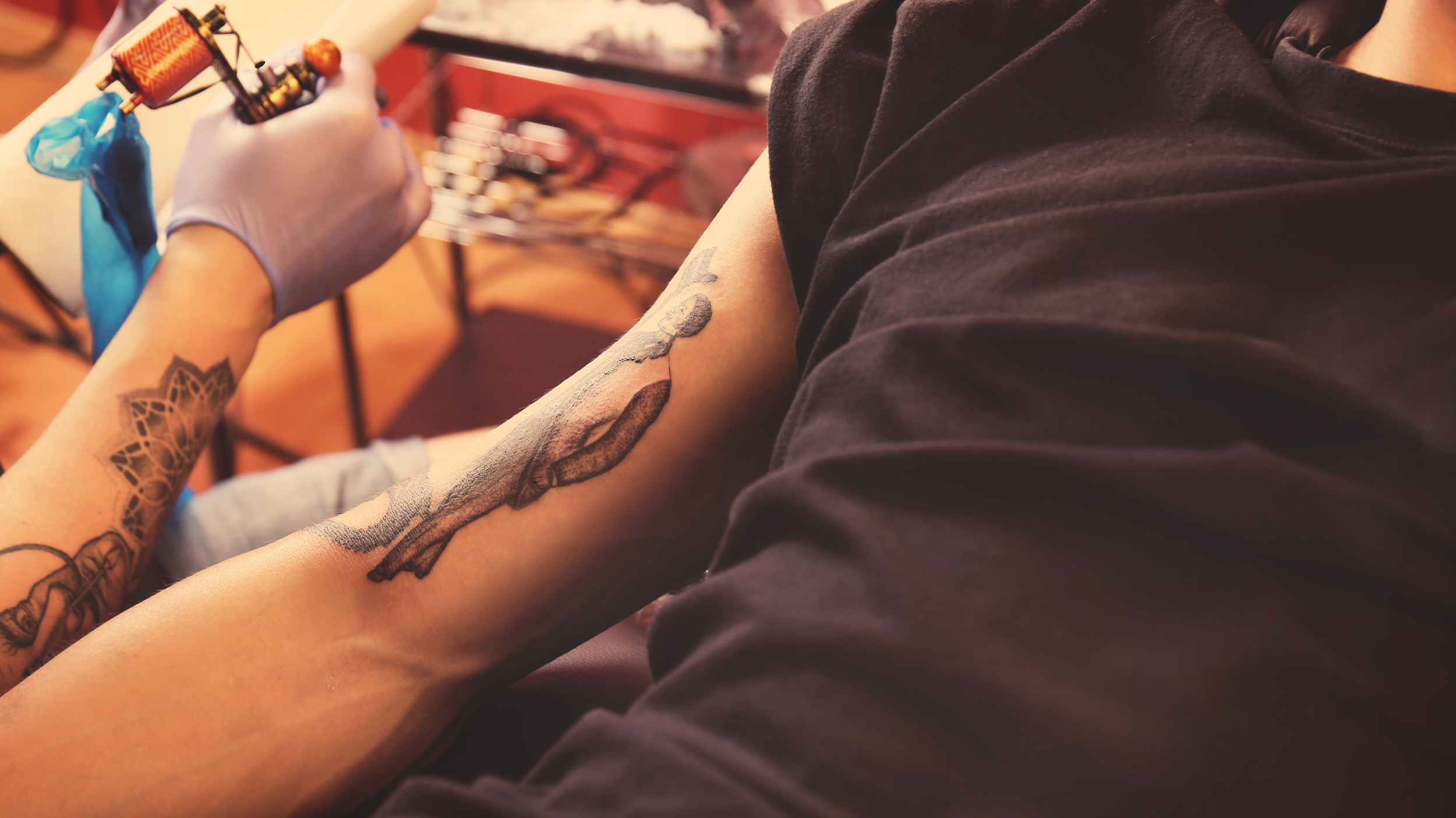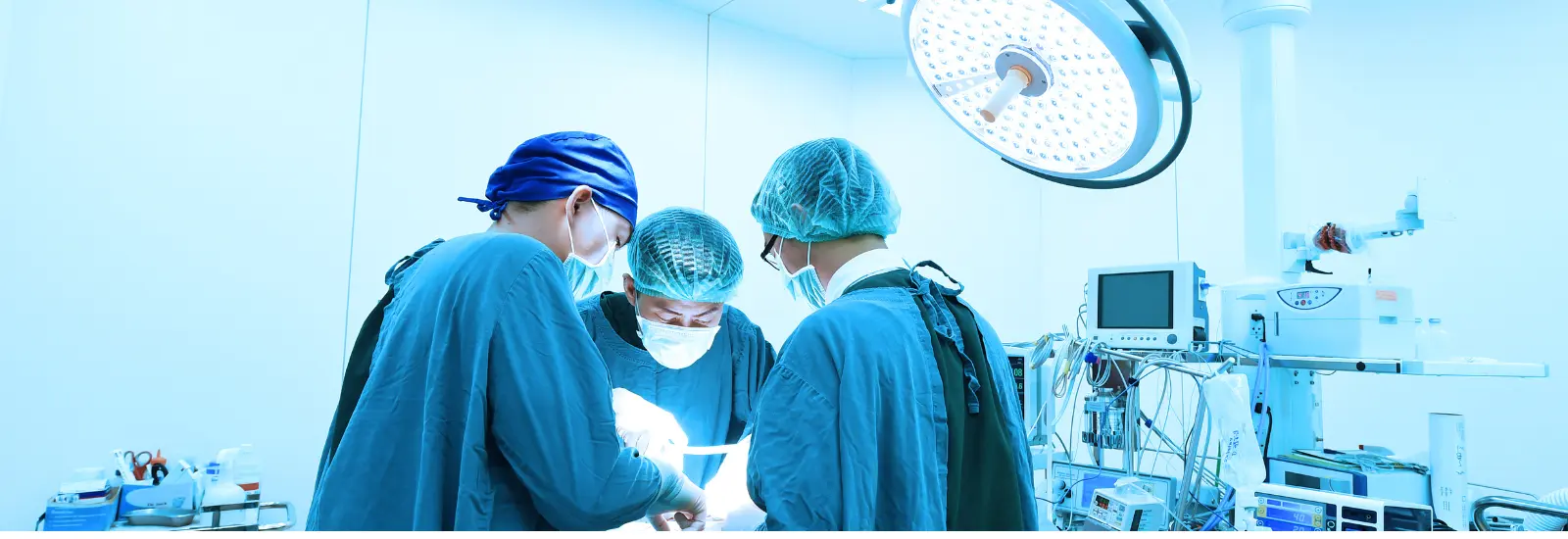You can take creatine while on Accutane, but only if a doctor says it’s safe for you. Both Accutane and creatine affect the liver and kidneys, so using them together can cause dehydration or raise enzyme levels. Some people do well on both, but others may experience fatigue, dryness, or notice changes in their lab results.
The best way to stay safe is to consult your dermatologist, stay hydrated, and follow their medical advice. Always consult your doctor before adding creatine while taking isotretinoin.
Combining isotretinoin (Accutane) with supplements like creatine often raises questions. At DermOnDemand, Dr. Hannah Kopelman, a board-certified dermatologist and skin expert, explains what you should know to protect your health during treatment.
Key Takeaways
- Taking creatine while on Accutane is possible but should only be done under medical supervision to avoid added stress on the liver and kidneys.
- Both Accutane and creatine can affect hydration and enzyme levels, so combining them may increase the risk of dryness, fatigue, or elevated lab values.
- Most dermatologists recommend waiting at least three to four weeks after completing Accutane before restarting creatine supplements.
- Regular blood tests and adequate hydration are essential for monitoring safety and detecting any early signs of liver or kidney strain.
- Consulting a board-certified dermatologist, such as Dr. Hannah Kopelman at DermOnDemand, ensures safe supplement decisions and personalized care during or after Accutane treatment.
Are Accutane and Creatine Safe?
Using them together can be risky for some people. Both Accutane and creatine can cause the liver and kidneys to work harder. Accutane changes fat and enzyme levels, while creatine affects water balance and muscle energy. That’s why doctors often suggest waiting to start creatine until after finishing isotretinoin.
Before taking any supplement, talk to a dermatologist. They can review your blood tests and help you decide if it’s safe. For most patients, it’s better to wait until Accutane treatment ends.
What Happens When You Take Them Together
Taking creatine and Accutane simultaneously may alter how your body processes water and nutrients. It can cause mild dehydration or higher liver enzyme readings. This is not usually a dangerous condition, but it can put extra stress on your organs.
Side Effects and Safety Concerns
Patients sometimes report fatigue, muscle cramps, or dryness when combining these products. Dehydration, elevated cholesterol, or mild liver irritation can also occur.
Learn more about common Accutane side effects and how they may overlap with supplement use. Staying well hydrated and avoiding alcohol reduces those risks. However, professional monitoring remains essential throughout therapy.
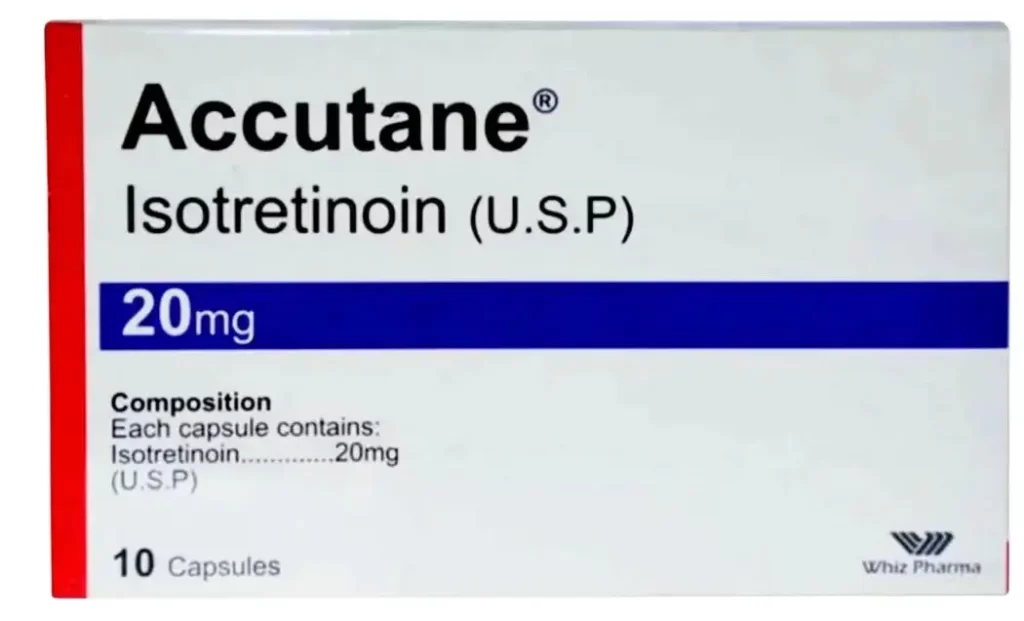
How Accutane and Creatine Affect You
Accutane targets oil glands and inflammation, while creatine affects muscle energy production.
If you’re curious about the difference between isotretinoin and tretinoin, understanding how these two medications work can help you make safer choices about your skin treatment plan. Together, they influence several internal systems, including the liver, kidneys, and the balance of hydration.
Liver, Kidney, and Hydration Effects
Accutane may raise liver enzyme levels. Creatine increases creatinine, a waste filtered by the kidneys. Together, they can add strain to these organs. Drinking more water and checking lab results during treatment helps protect your health.
Does Accutane Increase Creatinine?
Accutane itself doesn’t usually raise creatinine levels, but it can slightly affect how the kidneys process waste. In most cases, any change is mild and temporary. When you add creatine, those levels may rise a bit more because creatine naturally breaks down into creatinine.
This doesn’t always indicate kidney damage, but it’s essential to closely monitor your lab results during treatment. Regular monitoring helps your dermatologist identify early signs of strain and ensure your treatment remains safe.
Creatine and Acne: Is There a Connection?
Creatine doesn’t cause acne. However, intense workouts and dehydration from supplements can lead to temporary breakouts. Since Accutane works to clear acne, it’s best to wait until your skin is stable before using creatine.
Key Risks and When to Pause Supplements
Avoid taking extra supplements unless your dermatologist has approved them. Creatine can worsen dryness or cause headaches if you don’t drink enough water.
Low-Dose Accutane and Creatine: Safer or Not?
Even small doses of Accutane can hurt your liver. Lower doses reduce risks, but combining them with creatine still requires medical advice. Only lab tests can show if your body is handling both safely.
When to Stop or Adjust Supplement Use
Stop creatine if you feel weak, have dark urine, or get frequent muscle cramps. These may signal dehydration or stress on your kidneys. Consult your dermatologist before restarting or adjusting your dose.
When to Take Creatine After Accutane
Most dermatologists recommend waiting at least three to four weeks after finishing your Accutane treatment before restarting creatine. This waiting period allows your liver enzymes, cholesterol, and hydration balance to return to normal.
Once your follow-up blood tests look healthy, you can safely reintroduce supplements with your dermatologist’s approval. Taking this short break helps your body recover and reduces the risk of side effects when you resume creatine.
How to Know Your Body Is Ready
You’ll know your body is ready to take creatine again once your post-Accutane blood tests show normal liver and kidney function. Your skin should also be clear and less sensitive, with no lingering dryness or inflammation.
These signs indicate that your system has recovered from the effects of isotretinoin. Always confirm with your dermatologist before restarting creatine to ensure it’s the right time based on your lab results and overall health.
Safe Reintroduction and Monitoring
Start with a small dose and increase it gradually. Drink plenty of water every day, and avoid using several supplements at once. Recheck your labs after a month to make sure your body is responding well.
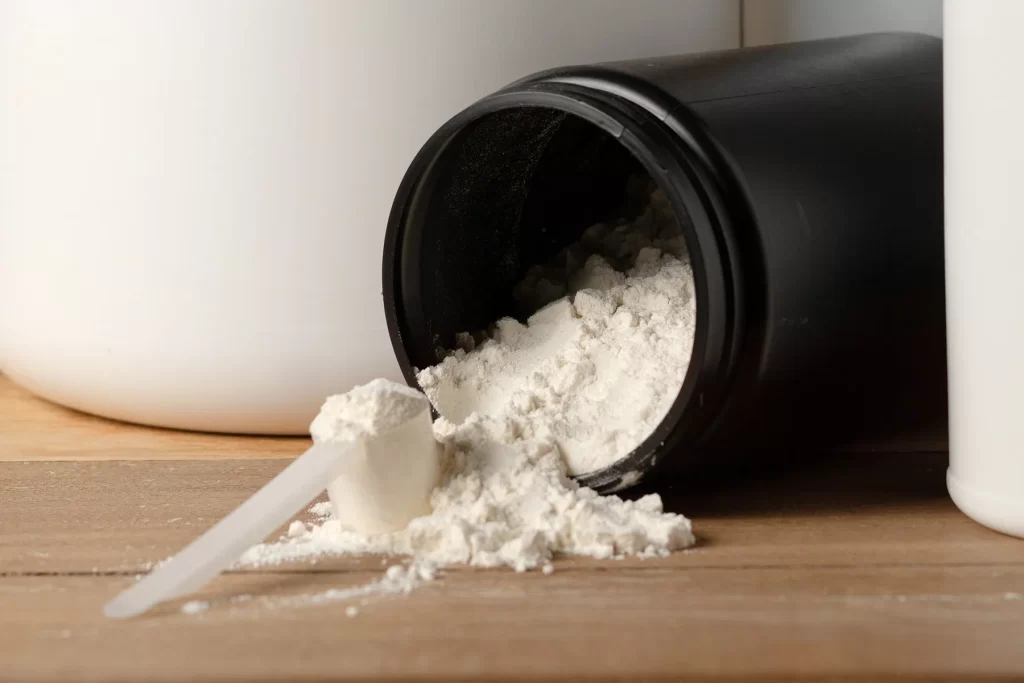
What to Avoid and Safer Alternatives During Accutane
Some supplements and habits can exacerbate the side effects of Accutane.
Unsafe Supplements and Performance Boosters
Skip products high in vitamin A, or pre-workout blends with caffeine or unknown ingredients. These can increase dryness, fatigue, or put more stress on your liver.
Dermatologist-Approved, Skin-Friendly Alternatives
Better choices include:
- Electrolyte drinks without stimulants.
- Protein powders without vitamin A.
- Omega-3 capsules to support your skin.
These options protect your skin and health while helping you stay active.
Expert Nutrition and Hydration Tips
Dr. Hannah Kopelman recommends eating balanced meals with protein, vegetables, and fruit. Drink 2–3 liters of water daily to avoid dryness. Limit alcohol and processed food to reduce liver strain.
Consult a Dermatologist Before Using Creatine
A dermatologist can check your blood work and treatment plan to see if creatine is safe for you. At DermOnDemand, board-certified dermatologists review each case and provide personalized advice within 24 hours. Their guidance helps you stay healthy while reaching your goals.
Start Your Online Dermatology Plan
If you want to use supplements during or after Accutane, don’t guess, get expert advice. DermOnDemand offers fast, private online consultations led by Dr. Hannah Kopelman and her team.
Complete a simple form, upload your details, and receive a personalized plan tailored just for you. No waiting rooms, no video calls – just clear guidance from trusted dermatologists.

